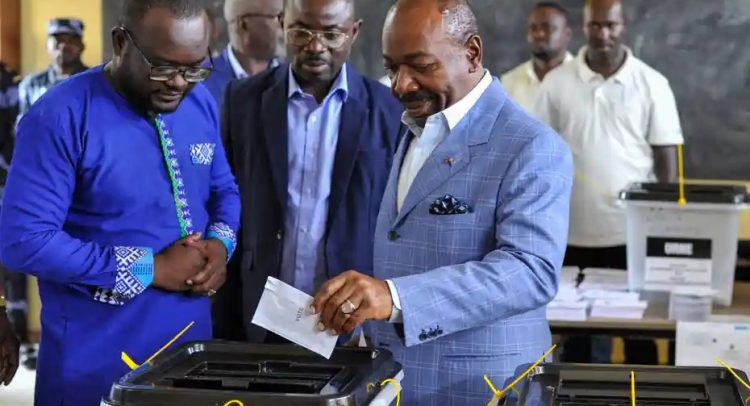A group of senior Gabonese military officers have appeared on national television declaring they have seized power, claiming the recent general election lacks credibility and saying they represent all Gabon’s security and defence forces.
They said the election results were cancelled, all borders closed until further notice and state institutions dissolved. Loud sounds of gunfire could be heard in the capital, Libreville, a Reuters reporter said, after the television appearance.
It was not immediately possible to reach the government for comment.
“In the name of the Gabonese people … we have decided to defend the peace by putting an end to the current regime,” the officers said on television.
Gabon’s incumbent president, Ali Bongo, won a third term in the presidential election with 64.27% of the vote, the Gabonese election centre said on Wednesday, after a delay-plagued general election that the opposition denounced as fraudulent.
Announcing the result in the early hours, the elections head, Michel Stephane Bonda, said Bongo’s main challenger, Albert Ondo Ossa, came second with 30.77%. Bongo’s team rejected Ondo Ossa’s allegations of electoral irregularities.
Tensions were running high amid fears of unrest after Saturday’s presidential, parliamentary and legislative vote, which saw Bongo seeking to extend his family’s 56-year grip on power while the opposition pushed for change in the oil and cocoa-rich but poverty-stricken nation.
A lack of international observers, the suspension of some foreign broadcasts, and the authorities’ decision to cut internet service and impose a night-time curfew nationwide after the poll had raised concerns about the transparency of the electoral process.
As one officer read the joint statement on television, around a dozen others stood silently behind him in military fatigues and berets.
The group have declared themselves members of the “committee of transition and the restoration of institutions”. The state institutions they declared dissolved included the government, the senate, the national assembly, the constitutional court and the election body.
If successful, the coup would represent the eighth in west and central Africa since 2020. Coups in Mali, Guinea, Burkina Faso, Chad and Niger have all undermined democratic progress.
In July, the military snatched power in Niger, sending shockwaves across the Sahel and sucking in global powers with strategic interests at stake.
Bongo, 64, who succeeded his father Omar as president in 2009, had 18 challengers, six of whom backed Ondo Ossa in an effort to narrow the race.
In 2016, the parliament building was torched when violent street protests erupted against Bongo’s contested re-election for his second term. The government shut down internet access for several days at the time.
Source: Guardian


